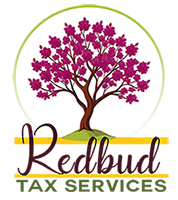When you own rental property, one of the key tax benefits is deducting rental expenses from your rental income, but things can get more complex when you also use the property for personal purposes. Real estate investors may purchase properties based on the appeal of using it for vacations, family reunions, or making it available to loved ones. Understanding the tax implications of mixing personal and rental use is essential to avoid potential issues with the IRS. Here’s a comprehensive guide on how the personal use of rental property affects your taxes.
Defining Personal Use of a Rental Property
Personal use of a rental property occurs when you use the property for vacation or someone who doesn’t pay fair market rent (such as family or friends) stays at the property.
Impact on Tax Deductions
The IRS limits tax deductions based on the number of days you use the property for personal purposes. The more personal use, the fewer expenses you can deduct against your rental income. Here’s how it works:
- If you rent your residence for 14 days or less during the year, the rental income is excluded from gross income and no deductions are allowed. This is known as the Augusta Rule.
- If you rent the property for more than 14 days and use it for personal purposes* for fewer than 15 days (or 10% of the total days rented at fair market value), expenses must be allocated between personal and rental use.
- If you use the rental property for personal purposes* for more than 14 days or more than 10% of the days rented, whichever is greater it is deemed a residence of the taxpayer. You can still deduct rental expenses, but deductions cannot exceed the gross rental income. Disallowed deductions can be carried forward and used as deductions in later years.
*Personal use does not include any day where the primary use is to perform repair or maintenance work on the property.
Allocating Expenses for Mixed-Use Properties
For rental properties with personal use, you need to allocate expenses between the two uses. Common expenses include mortgage interest, property taxes, utilities, repairs, and depreciation. The allocation is based on the number of days the property is used for personal versus rental purposes.

For example, if your property is rented for 200 days and used personally for 20 days, you can only deduct 90.9% of your expenses (200 days out of 220 days total).
Example of Expense Allocation:
- Total days rented: 200
- Total days of personal use: 20
- Total use: 220 days
- Deductible percentage: 200/220 = 90.9%
You would be able to deduct 90.9% of your expenses on Schedule E.
*There is an alternate calculation method known as the “Tax Court” method, which calculates the percentage based on total fair rental days over the total days in the year.
Protect Your Deductions
To ensure that you can accurately allocate expenses and avoid any red flags with the IRS, it’s crucial to maintain detailed records of both your rental and personal use. This includes keeping a calendar that tracks:
- Days rented
- Days of personal use
- Days used for repairs and maintenance
Accurate, detailed record-keeping can help you substantiate your claims if you’re ever audited.


